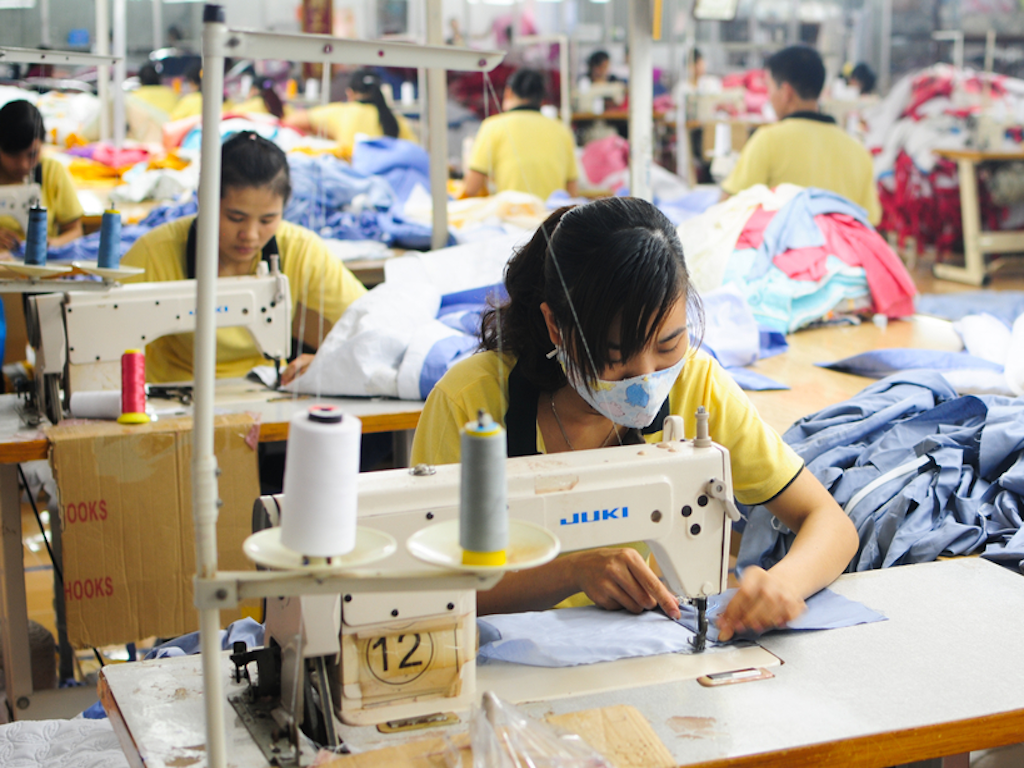3 Mins Read
Vietnam’s significant textile industry is battling the sudden drop in orders due to vanished demand as a result of the coronavirus, which could mean the loss of vital incomes for the country’s garment makers. Vinatex, one of the largest corporations in Vietnam, says that as many as 50,000 workers could be furloughed as a result of the pandemic.
Textile industry leader Vinatex, who owns an estimated 200 factories in Vietnam and employs more than 100,000 workers to produce goods for big-name fast fashion clients including Zara and H&M, says that the vanished demand for fashion amidst the coronavirus could mean that they are forced to furlough up to 50,000 of its garment makers.
“As things stand, 30% to 50% of jobs will disappear by May,” said Vinatex CEO Le Tien Truong.
Consumer demand for fashion apparel and goods have plunged across the globe but especially in the United States and Europe, where countries are only just beginning to ease lockdown restrictions to combat the spread of the virus. In response, many fashion retailers have cancelled existing orders or postponed new ones.
While factories in the Vietnamese capital of Hanoi have been allowed to remain open during the pandemic, orders are simply not coming back in. According to data from the country’s Ministry of Industry and Trade, orders for textiles and footwear have dropped 70% by value for April and May compared to the same period last year.
Some garment operators have adapted to the demand shock by producing masks, but Vinatex says that it will not be enough to make up for disappeared orders. Even in the unlikely situation where the coronavirus is contained by the end of this month, the corporation is set to lose 1 trilling dong (US$42.4 million) – equivalent to twice the amount of net profit the company made last year.
With the coronavirus set to linger until a promising vaccine is developed – which scientists and experts estimate will take at least 12 to 18 months – Vinatex is almost bound to sink even further, with many small and midsize factories having to close, meaning the loss of thousands of jobs.
The majority of garment workers in Vietnam, much like garment workers across Southeast Asia and around the world, earn minimum wage incomes, which means that they are already among some of the most vulnerable groups to be disproportionately affected by the coronavirus pandemic.
Living in cramped conditions with little to no access to basic sanitation let alone the ability to self-isolate and social distance from others, many workers are facing abject poverty alongside the threat of a deadly disease.
In a bid to save as many livelihoods as possible, textile industry representatives from 6 Asian countries including Vietnam issued a joint statement earlier last month (April 9) to demand clothing brands to compensate suppliers for cancelled orders.
While H&M have promised to keep to their contracts for orders that have already reached production stage, multiple other big apparel companies have requested extensions to pay up on completed orders.
Read: Post-coronavirus unsustainable “revenge shopping” could bring about future crises
In Bangladesh, where a significant portion of the economy is fuelled by the textile and garment industry, workers are also hung out to dry as a result of lost or cancelled orders. Among some of the brands exposed to be leaving thousands of workers without income or severance pay include Primark, Bestseller, Marks & Spencer, Walmart and JCPenney.
Calling out these brands, climate action group XR Fashion Action wrote in an post: “For workers with no ability to put food on the table, let alone cover medical expenses, and who live on the knife edge of poverty, this is devastating for themselves and their families.”
The failure of big fashion companies to pay its workers in its supply chain will only further taint the fashion industry that has already suffered from scrutiny over its massive environmental footprint and dubious human rights practices.
Read our previous news coverage of Covid-19 here and more fashion stories here.
Lead image courtesy of Shutterstock / Jimmy Tran.




